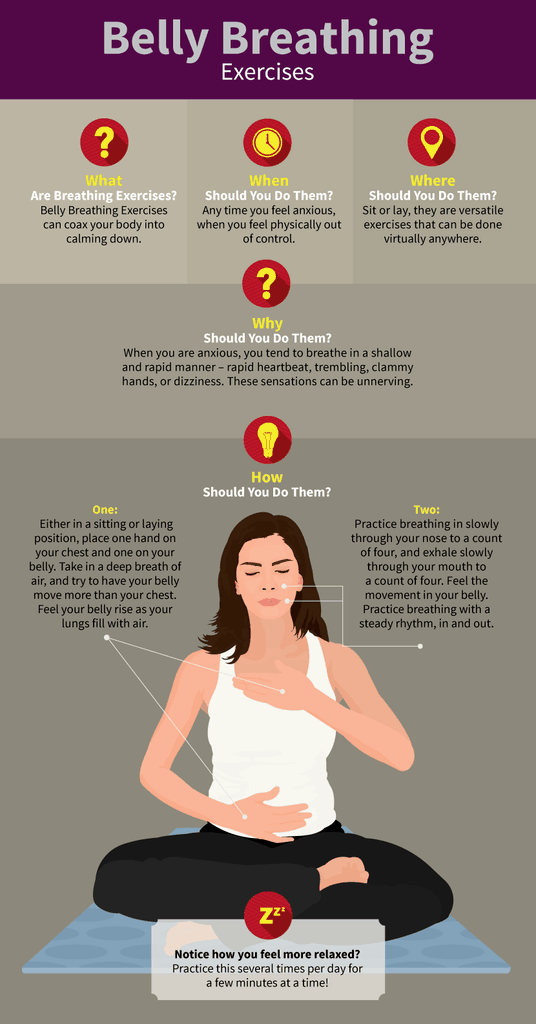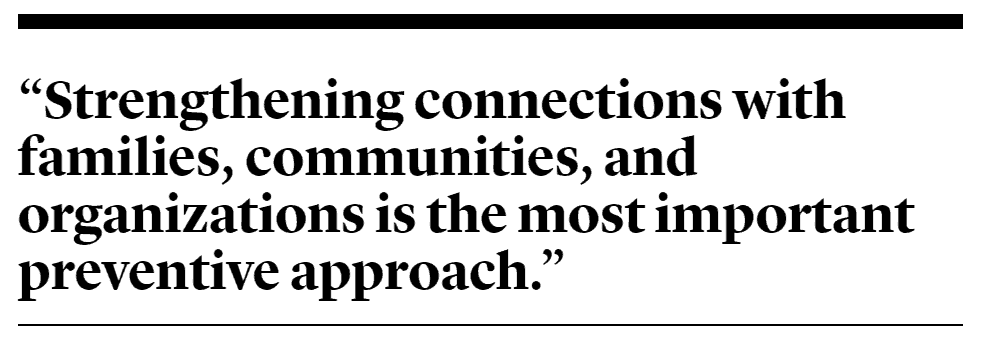Did you know that 1/3 of workers report high levels of stress? Or that 1/4 of employees view their job as the number one stressor in their lives? These aren’t good stats, especially for a small business owner to hear! It’s very important to nip stress in the bud, as stress is a major cause of turnover in organizations.
Signs of Stress
You often won’t know your employees are suffering from stress until it’s too late. Like when they put in their two weeks notice. The same goes for yourself. There’s been times in my life in which I don’t realize that I’m stressed out until my eye starts twitching. I take note of the things going on around me and realize that things have been stressful once I have that physical response.
You can’t spend your time searching your staff’s eye’s to see if they’re twitching, though. Some people don’t respond to stress the same way that others do. The following are some signs that the people around you may be stressed out:
- Tiredness and irritability
- Reduced quality of work
- Indecisiveness and poor judgement
- Loss of sense of humor
- Physical illness like headaches, nausea, aches and pains
- Increased sick days
- Seeming jumpy
- Admitting to sleeping poorly
- Changes in work patterns
Work-Related Stress Causes
It’s important to know what the causes of stress at work are. You may find that your employees don’t need a better paid time off policy–you may just need to do something as simple as cranking up the air conditioner! The following are some common work-related stress causes.
Low Quality Social Interactions
Thirty-five percent of your waking life will be spent at work during the years that you are eligible for work on average. That’s A LOT. It’s easy to assume with that considered that most of your social interactions will occur during the work day. It can play a big role in work-related stress and overall unhappiness if those social interactions aren’t positive. There are several types of negative social relationships that can have that impact.
Specific Employees
Bullying and harassment are issues that occur far more frequently than people realize. The largest companies have great human resources departments that can deal with these issues. Small businesses do not. It’s more likely that issues like this could be ignored within a small business and you may not realize the way that certain toxic employees are wreaking havoc on your business.
A Culture Issue
Work-related stress due to low quality social interactions can be a systematic issue at times. This is when your company has a prevalent blame culture. This is when people in our organization are unwilling to speak out, take risks or accept responsibility at work because of fear of criticism or retribution. Side effects are gossip, casting blame on outside parties, and attempts to conceal mistakes.
A blame culture can be detrimental to your business. But there are things you can do if your workplace has a culture of blame.
Feeling Unsupported
Employees can still be dealing with social issues at work even when you don’t have a systematic issue or a bad egg. You can have an outlier on your team if you didn’t place importance on a new hire being a “good fit” socially. That person can feel isolated when they lack interpersonal support and will feel more frustrated with no one to talk to after dealing with angry customers.
Overwhelmed or Underwhelmed at Work
Excessively high workloads can lead you or your employees to feel overwhelmed. This is especially true when there are unrealistic deadlines in place or when someone is being asked to do projects and tasks that are outside their realm of experience and training. Workers will feel rushed, under pressure, full of stress, and that’s when resentment can sink in.
Yet, surprisingly enough, your employees can also feel stressed at work due to underwhelm. If a good employee knows that their skill set is being underused and undervalued, they may feel like their work life isn’t living up to their potential. These employees can feel frustrated that their work is satisfying in other ways that they find less important than fulfillment, and will worry that what they need to do is find a job elsewhere.
It’s important that you have a workload for your employees that strikes a balance between allowing them to feel challenged and fulfilled, yet not too rushed for their abilities.
Management Issues
I hate to break it to you, but sometimes it’s your fault, plain and simple. Or it’s a middle manager’s fault. There are three types of management issues that are known to cause a significant amount of work-related stress: weak management, over-management, and frustration with multiple reporting lines.
Weak leaders do not provide adequate direction, contribute to a blame culture, doesn’t listen to their team, don’t admit to mistakes, and makes employees feel disposable.
Over-management, or micromanagement can be just as detrimental to your small business as weak management. Micromanagers are bosses or managers who give excessive supervision to employees. This management style frustrates employees, makes them overly dependent on their managers, and decreases productivity by a significant amount. Are you a micromanager? There are ways to avoid micromangement.
Multiple reporting lines can also be a work-related stress issue. Sometime it’s not an issue of a specific manager, but rather too many managers in one shape or form. If an employee is receiving tasks from multiple people whom all think that their issue is the employee’s top priority, they are bound to feel like they aren’t in control of their work environment and have no way to come out of the situation on top.
Lack of Control
The above management issues are a big problem because it leaves employees feeling like they lack control. According to Dr. Christina Maslach, author of The Truth About Burnout:
When people lack control over decision making, especially when things begin to conflict with their values, it leads to a lot of stress in the workplace. In fact high job demands in combination with low control is detrimental to morale and health. It can lead to depression, coronary disease, and has even been proven to cause earlier death.
Another thing that can lead to work-related stress are things that are outside of everyone’s control. Like natural disasters. Whether you kept your small business running during a natural disaster or you’re still dealing with issues as a result of disaster recovery, it can take a toll on you and your employees.
Poor Physical Working Environment
If you’re looking at all the above information and you don’t see any big issues with the social, management, or workload aspects of your work environment, don’t worry. The underlying issue could be something really simple with a very simple solution. Like a change the thermostat kind of problem.
It sounds crazy, I know! But people need their basic needs met and it’s hard to concentrate if they feel like they’re in the Sahara or the Arctic all day. Or if someone near them insists on listening to music without headphones. If they have to squint every time they read a printout because of low quality lighting. Ancient, uncomfortable chairs, consistently malfunctioning equipment, and a cluttered workspace can all be contributing factors to your or your employee’s work-related stress. So bite the bullet, learn how to organize an office, and try asking Sandra why she brings a heavy coat every day when it’s 89 degrees Fahrenheit outside.
Treatment for Work-Related Stress
Take a Break
Is your work-life balance suffering? A vacation may be in order if you’ve been overworked. But your vacation doesn’t need to be anything dramatic or on the other side of the world. You can have a staycation where you just relax and make it a point to not do anything work related. Or you can take a day trip to somewhere new and different near your home.
Increase Communication
Work-related stress that is a result of a relationship with a manager or employee should be addressed quickly. You don’t want feelings to fester. This is a time in which it’s important to tactfully and respectfully address an issue that’s going one between team members.
Team Building
Increasing moral is hard work when you’re in the throws of getting work done. However, it’s easy when you’ve set aside time just for fun and/or getting to know each other type of activities. Try not to choose an activity that’s too corny. An escape the room activity or happy hour will do the trick, while a bad team building exercise may have the employees bonding over how much of a dunce they all think you are.
Make a Change
You may have a pretty good understanding of what the problem is after reading the above work-related stress causes. Use your power as the small business owner to make organizational change if that’s the case. Adjust workloads, change management, or make a headphones-only music policy.
Consider if your stress is something caused by your own bad habits. Should you change routines, declutter your desk or conquer your inbox? Use your best judgement to determine what is the best solution for your work environment.
Make Plans
Small, flexible routines lower stress by increasing productivity as well as daily predictability.
Stop Asking ‘What if?’
Sometimes work related stress doesn’t have much to do with what’s actually going on. Sometimes work-related stress is more so a result of worrying about the possibilities of what could happen. Small business owners often find themselves wrapped up in financial worries and ‘what if?s’. Don’t fall into this trap.
Have ideas for solutions prepared for those hypothetical questions you’ve already found yourself fretting over. Concrete strategies like “if X happens, I’ll do Y” can better help you face challenges that may arise.
Get Your Rest
Some of your stress issues can be resolved with addressing low quality sleep habits. Make sure your basic needs are met before blaming stress on outside situations.
Seek Professional Help
You may need to talk to a professional if you find that your stress is chronic. Don’t hesitate to use the resources that you may need if you feel as if you’ve tried all that you can in other ways.
Stress Relievers at Work
Pay Attention to Your Stress Levels
The first step to dealing with stress is to notice it when it comes up. Train yourself to see your stress when it comes up as a red flag that there is something that needs to be addressed rather than feeling helpless over the feeling.
It’s easier to see the positive side of stress if you use stress as a signalling tool.
Cut Back on Caffeine
I’ve got bad news for you grande latte guzzlers out there: caffeine is real bad for stress and anxiety.
Caffeine can seem crucial for small business owners to get going and keep going. Caffeine helps stimulate the senses in ways that you appreciate but it also is a stimulant that increases heart rate and can lead to nervousness and agitation, increasing anxiety levels. In fact, the American Psychological Association has even recognized caffeine related anxiety.
Treat Yo’self!
Add a little more joy to your work day. Have a sweet treat, call a close friend on your lunch break to reconnect, or keep fresh flowers on your desk. Grab your headphones and listen to some uplifting music. Do what you can to inject a little more joy into your day.
Move your Body
Exercise releases “feel good” hormones, like dopamine and endorphins, that can help you manage stress, so change your ‘coffee break’ or ‘smoke break’ to a fresh air break. Or a move-around-inside-the-office break. You could try doing some gentle stretches if you need to remain at your desk.
Regular exercise reduces stress and improves health. But don’t worry if you can’t manage to get a good workout in before or after work. Small spurts of activity work well even when you can’t schedule a workout. A ten minute walk can be as beneficial as a forty-five minute workout to relieve anxiety. It’s just not as good for your waistline.
Take a Breath
This activity is simple enough and can be done at your desk. Take five minutes to breathe slowly and deeply. Listen to your breath and try to clear your mind, just for a moment. Slow breaths reduce stress hormones (like cortisol and epinephrine) in the body, lower heart rate, and lowers blood pressure. Take it a step further by practicing belly breathing.
Have a Laugh
Laughter releases endorphins that improve mood and immune health, lowers stress hormone levels and has proven to improve pain management. That’s some good stuff!
So when you’re feeling stressed out at work, take a little laugh break. Watch a funny video, check out a funny subreddit, or just watch this:
Practice Gratitude
Cultivating gratitude has been known to counteract stress. You can do this by thanking other people deeply and more often for the ways they contribute and you can also evoke a general feeling of gratitude within yourself more often.
A great way to do this would be to create a journal of ‘work wins.’ You can jot down quick entries that are small or large accomplishments that you’ve had at work, little things you enjoy about your work life and compliments you’ve received from people on your team in this space. You can also write longer entries about why your work is fulfilling: the customers you help directly, the greater cause you’re supporting, goals you’ve achieved, and the positive things that the compensation bring you in your life. Journaling helps promote reflection, organizes your thoughts, and allows you to focus on the positive.
Single Task
Sometimes your overwhelm can come from your own work habits. Single-tasking is the simplest way to reduce stress and you can start right now. Don’t check instant messages before you finish this post. Do one thing at a time and focus intently on that one thing. Clear your desk of distractions and turn off notifications on your devices.
We as a society have been programming ourselves to do the opposite for around a decade now. We’re constantly checking devices and trying to do more things at once. So don’t be frustrated when you notice how difficult it can be to single task. Just keep practicing and you’ll get better at singe tasking with time.
Reach out for Support
Look to your teammates if there are tasks that are creating significant stress in your work day. You can also turn to them to vent after dealing with stressful situations, like an angry customer or dealing with negative online reviews. Take this managing stress advice from from Jack Saul, the director of the International Trauma Studies Program:
Apply this to your small business
Stress at work can happen to anyone. Don’t feel discouraged or alone if it’s happening to you. Use the above tips instead to up your morale as well as your employees.
Now, try this…
You might want to try checking out our answering service‘s other small business posts if you liked this one!











